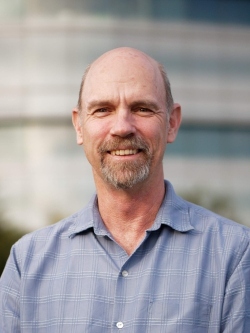
Andrew McCulloch, PhD

- Profile
- Bio
- Research
Profile
Distinguished Professor of Bioengineering and Medicine
Shu Chien Chancellor’s Endowed Chair in Engineering and Medicine
Director, Institute of Engineering in Medicine
University of California San Diego
Areas of Expertise: Systems biology, multiscale modeling, computational biology
Bio
Dr. Andrew McCulloch is the Shu Chien Chancellor’s Endowed Chair in Engineering and Medicine at the University of California San Diego and Director of the Institute for Engineering in Medicine. He earned his bachelor (1981) and Ph.D. (1986) degrees in Engineering Science at the University of Auckland and joined the UC San Diego faculty in 1987. He directs the UCSD Interfaces Graduate Training Program and the Interdisciplinary Ph.D. Specialization in Multi-Scale Biology. Dr. McCulloch served as Vice Chair of the Bioengineering Department from 2002 to 2005 and Chair from 2005 to 2008. He is also a member of Qualcomm Institute, the Center for Research on Biological Systems, and a Senior Fellow of the San Diego Supercomputer Center.
Dr. McCulloch was educated at the University of Auckland, New Zealand in Engineering Science and Physiology receiving his Ph.D. in 1986. Dr. McCulloch was an NSF Presidential Young Investigator and is a Fellow of the American Institute for Medical and Biological Engineering and a Fellow of the Cardiovascular Section of the American Physiological Society. He has served on the Board of Directors of the Bio-Medical Engineering Society, and is currently Associate Editor of PLoS Computational Biology. He also serves on the Executive Council of the International Union of Physiological Sciences.
Dr. McCulloch has published over 250 peer reviewed research article. His lab uses multi-scale engineering approaches to help understand, diagnose and treat heart diseases. They use experimental and computational models to investigate the relationships between the cellular and molecular structure of cardiac muscle and the electrical and mechanical function of the whole heart during ventricular remodeling, heart failure and arrhythmia. The lab is also developing new methods to generate patient-specific models for clinical use and has licensed technologies to startup companies.